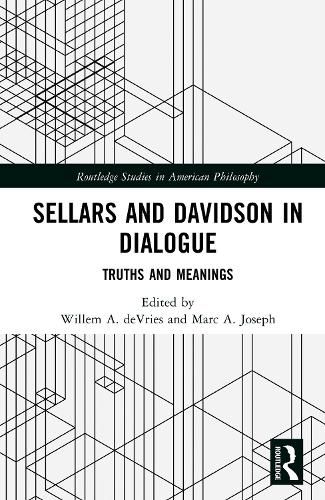Readings Newsletter
Become a Readings Member to make your shopping experience even easier.
Sign in or sign up for free!
You’re not far away from qualifying for FREE standard shipping within Australia
You’ve qualified for FREE standard shipping within Australia
The cart is loading…






Wilfrid Sellars and Donald Davidson were two of the most influential American philosophers of the twentieth century. This volume explores the deep similarities and differences between these two philosophers.
Both Sellars and Davidson worked through the mid-to-late 20th century re-evaluation of the empiricist inheritance that shaped what became analytic philosophy, and both are critical of key elements of that picture. In the broadest terms, both philosophers challenge the solipsistic, mentalistic conception of knowledge and meaning that informs the tradition and set in its place systems of interrelated views that prioritize a holistic and social conception of mind, action, and language. At the same time, there are several differences in method and philosophical semantics that divide Sellars and Davidson. The chapters in this volume address the deep relations of Sellars's and Davidson's views on mind, language, and knowledge. They demonstrate how, despite coming from different assumptions and methodologies, Sellars and Davidson converge on a view that essentially erases the philosophy of language as a separate discipline and embeds it in the philosophy of action.
Sellars and Davidson in Dialogue will appeal to scholars and advanced students interested in the history of analytic philosophy, epistemology, philosophy of language, and philosophy of mind.
$9.00 standard shipping within Australia
FREE standard shipping within Australia for orders over $100.00
Express & International shipping calculated at checkout
Wilfrid Sellars and Donald Davidson were two of the most influential American philosophers of the twentieth century. This volume explores the deep similarities and differences between these two philosophers.
Both Sellars and Davidson worked through the mid-to-late 20th century re-evaluation of the empiricist inheritance that shaped what became analytic philosophy, and both are critical of key elements of that picture. In the broadest terms, both philosophers challenge the solipsistic, mentalistic conception of knowledge and meaning that informs the tradition and set in its place systems of interrelated views that prioritize a holistic and social conception of mind, action, and language. At the same time, there are several differences in method and philosophical semantics that divide Sellars and Davidson. The chapters in this volume address the deep relations of Sellars's and Davidson's views on mind, language, and knowledge. They demonstrate how, despite coming from different assumptions and methodologies, Sellars and Davidson converge on a view that essentially erases the philosophy of language as a separate discipline and embeds it in the philosophy of action.
Sellars and Davidson in Dialogue will appeal to scholars and advanced students interested in the history of analytic philosophy, epistemology, philosophy of language, and philosophy of mind.